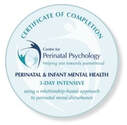Gestalt is an emotionally focused existential therapy that aims to promote awareness, increase response-ability ~ our ability to respond spontaneously and appropriately to the environment or to our inner needs ~ and maturation.
Gestalt therapy is psychotherapy that differs from psychoanlysis. Gestalt is more akin to Ekchart Tolles' "Being in the now." You are invited to see how the various aspect of your ego operate to keep you stuck in painful situations. Gestalt is relationally oriented so it is the ideal therapy to help you see who you are in relationship to others, to uncover the patterns that hold you back, and to find a more authentic way of living.
Gestalt therapy encourages personal growth, leading to a more fulfilling life and satisfying relationships. It is useful for addressing immediate crises and long-term chronic issues.
With Gestalt we seek to reinstate wholeness to the person by helping them become fully integrated. People are not seen as sick or dysfunctional but as having adapted functional ways of dealing with situations that served them well in the original contexts in which those situations occurred. The problem now is that the person is stuck in behaving that way. The personality becomes split and part of the person is frustrated, conflicted or rigidly repeating what they know is not good for them. This ties up energy that would otherwise be directed toward growth and creates a situation that can lead to depression, anxiety and many other psychological issues.
Gestalt is great for examining how you defend against being your authentic self, as well as for working with internal splits (which often underlie and fuel anxiety) and looking at unexpressed parts of your self including your shadow self, which can take on a life of its own and work against your best intentions, often sabotaging your relationships.
Gestalt therapy addresses the many defence mechanisms that we all use to reject unwanted aspects of self and others, the anxiety that results from splits in the personality and the depression that comes from rejecting parts of our self and suppressing emotions. Unresolved issues from the past are recognized as unfinished issues that yearn for resolution in the present and often create the repeating patterns of our current problems.
Gestalt is the ideal relationship therapy, utilising the therapeutic relationship to identify issues that occur in a person's day-to-day relationships. Gestalt therapy aims to turn power relationships into loving relationships and enable an individual to find a sense of wholeness and authenticity.
Gestalt offers the deepest understanding of the thoughts, feelings, bodily sensations and spiritual longing for meaning and connection to the essential self and for knowledge of what it means to be human. Gestalt develops therapists who have authenticity and know from the inside out what it means to go through emotional growth and come out the other side a fuller person.
Gestalt Therapy is not Fritz Perls (for those who have seen those dreadful YouTube videos). It is simply the most comprehensive system of personal growth and development that has yet to be replicated in post-modern therapies.
Gestalt therapy is psychotherapy that differs from psychoanlysis. Gestalt is more akin to Ekchart Tolles' "Being in the now." You are invited to see how the various aspect of your ego operate to keep you stuck in painful situations. Gestalt is relationally oriented so it is the ideal therapy to help you see who you are in relationship to others, to uncover the patterns that hold you back, and to find a more authentic way of living.
Gestalt therapy encourages personal growth, leading to a more fulfilling life and satisfying relationships. It is useful for addressing immediate crises and long-term chronic issues.
With Gestalt we seek to reinstate wholeness to the person by helping them become fully integrated. People are not seen as sick or dysfunctional but as having adapted functional ways of dealing with situations that served them well in the original contexts in which those situations occurred. The problem now is that the person is stuck in behaving that way. The personality becomes split and part of the person is frustrated, conflicted or rigidly repeating what they know is not good for them. This ties up energy that would otherwise be directed toward growth and creates a situation that can lead to depression, anxiety and many other psychological issues.
Gestalt is great for examining how you defend against being your authentic self, as well as for working with internal splits (which often underlie and fuel anxiety) and looking at unexpressed parts of your self including your shadow self, which can take on a life of its own and work against your best intentions, often sabotaging your relationships.
Gestalt therapy addresses the many defence mechanisms that we all use to reject unwanted aspects of self and others, the anxiety that results from splits in the personality and the depression that comes from rejecting parts of our self and suppressing emotions. Unresolved issues from the past are recognized as unfinished issues that yearn for resolution in the present and often create the repeating patterns of our current problems.
Gestalt is the ideal relationship therapy, utilising the therapeutic relationship to identify issues that occur in a person's day-to-day relationships. Gestalt therapy aims to turn power relationships into loving relationships and enable an individual to find a sense of wholeness and authenticity.
Gestalt offers the deepest understanding of the thoughts, feelings, bodily sensations and spiritual longing for meaning and connection to the essential self and for knowledge of what it means to be human. Gestalt develops therapists who have authenticity and know from the inside out what it means to go through emotional growth and come out the other side a fuller person.
Gestalt Therapy is not Fritz Perls (for those who have seen those dreadful YouTube videos). It is simply the most comprehensive system of personal growth and development that has yet to be replicated in post-modern therapies.



